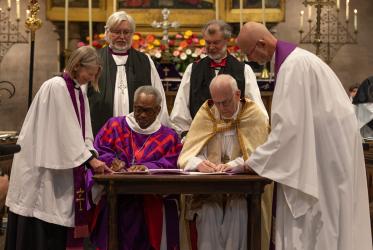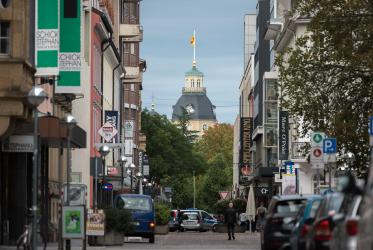Displaying 1 - 18 of 18
WCC executive committee lights the way for WCC 11th Assembly
26 November 2021
Thursdays in Black ambassadors map positive future
06 October 2020
New student body at Bossey Ecumenical Institute “a source of joy”
14 September 2020
Those who make Bossey so special: The students
14 November 2019
Ecumenical young trailblazers
15 August 2019
Panel discussion fields ideas on European identity
26 April 2016










